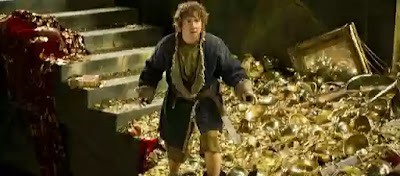Also Read
The Vindictives
You like to hear about gold.
A king filled his prison room
As full as the room could hold
To the top of his reach on the wall
With every known shape of the stuff.
'Twas to buy himself off his doom.
But it wasn't ransom enough.
His captors accepted it all,
But didn't let go of the king.
They made him send out a call
To his subjects to gather them more.
And his subjects wrung all they could wring
Out of temple and palace and store.
But when there seemed no more to bring,
His captors convicted the king
Of once having started a war,
And strangled the wretch with a string.
But really that gold was not half
That a king might have hoped to compel-
Not a half, not a third, not a tithe.
The king had scarce ceased to writhe,
When hate gave a terrible laugh,
Like a manhole opened to Hell.
If gold pleased the conqueror, well,
That gold should be the one thing
The conqueror henceforth should lack.
They gave no more thought to the king.
All joined in the game of hide-gold.
They swore all the gold should go back
Deep into the earth whence it came.
Their minds ran on cranny and crack.
All joined in the maddening game.
The tale is still boastingly told
Of many a treasure by name"
That vanished into the black
And put out its light for the foe.
That self-sack and self-overthrow
That was the splendidest sack
Since the forest Germans sacked Rome
And took the gold candlesticks home.
One Inca prince on the rack,
And late in his last hour alive,
Told them in what lake to dive
To seek what they seemed so to want.
They dived and nothing was found.
He told them to dive till they drowned.
The whole fierce conquering pack
Hunted and tortured and raged.
There were suns of story and vaunt
They searched for into Brazil
Their tongues hanging out unassuaged.
But the conquered grew meek and still.
They slowly and silently aged.
They kept their secrets and died,
Maliciously satisfied.
One knew of a burial hole
In the floor of a tribal cave,
Where under deep ash and charcoal
And cracked bones, human and beast,
The midden of feast upon feast,
Was coiled in its last resting grave
The great treasure wanted the most,
The great thousand-linked gold chain,
Each link of a hundred weight,
That once between post and post
(In-leaning under the strain),
And looped ten times back and forth,
Had served as a palace gate.
Some said it had gone to the coast,
Some over the mountains east,
Some into the country north,
On the backs of a single-file host,
Commanded by one sun-priest,
And raising a dust with a train
Of flashing links in the sun.
No matter what some may say.
(The saying is never done.)
There bright in the filth it lay
Untarnished by rust and decay.
And be all plunderers curst.
'The best way to hate is the worst.
'Tis to find what the hated need,
Never mind of what actual worth,
And wipe that out of the earth.
Let them die of unsatisfied greed,
Of unsatisfied love of display,
Of unsatisfied love of the high,
Unvulgar, unsoiled, and ideal.
Let their trappings be taken away.
Let them suffer starvation and die
Of being brought down to the real'
Summary and Analysis
Introduction:
Perhaps the only Frost poem containing what may be called a heroic action, The Vindictives is from the volume, A Further Range. The poem is all about an abduction of imperium for gold.
Summary:
The poem deals with the looting of the Inca Empire by the Spaniards, and the manner in which the Incas sacked their own country and buried the gold. Gold has been a temptation for man, and in the desire for it, he has committed atrocious crimes. All the gold of a king failed to give him a lease of life, as his captors were greedy for more. An Inca Prince told his torturers that they could get all the gold they wanted from a particular lake. They dived and dived till they drowned. The vanquished Incas had returned the gold "deep into the earth whence it came", and they died with the secret, "maliciously satisfied". The concluding passage tells us: The best way to hate is the worst." In other words, the most effective way to show hate for an enemy is, not to kill, but to keep from him what he desires most.
Critical Analysis:
Obviously didactic, this poem is not one of Frost's best poetic creations. It is inspired by a simple and true hatred of injustice and brutality but it is too explicitly moralistic. A terrific blend of heroism along with intelligence brings the finest outcome in narration. It may indeed, "end in wisdom" but there is little delight in it.
